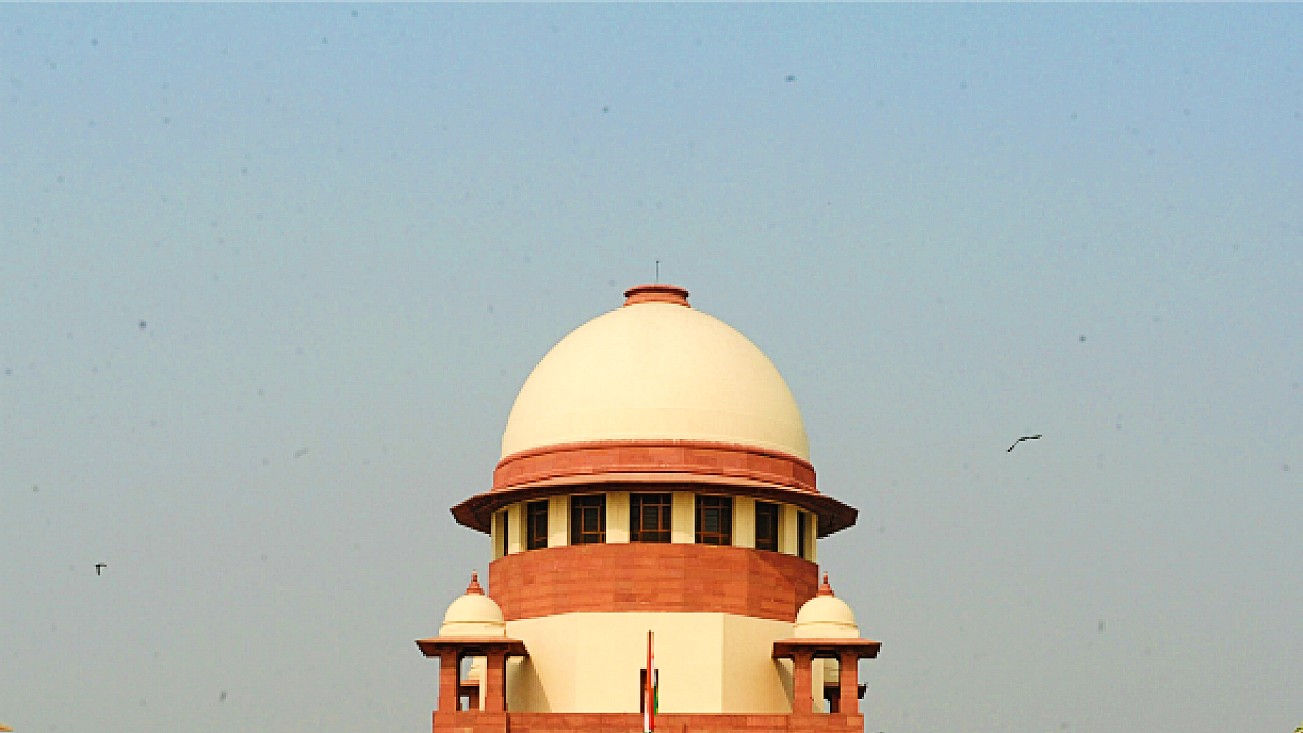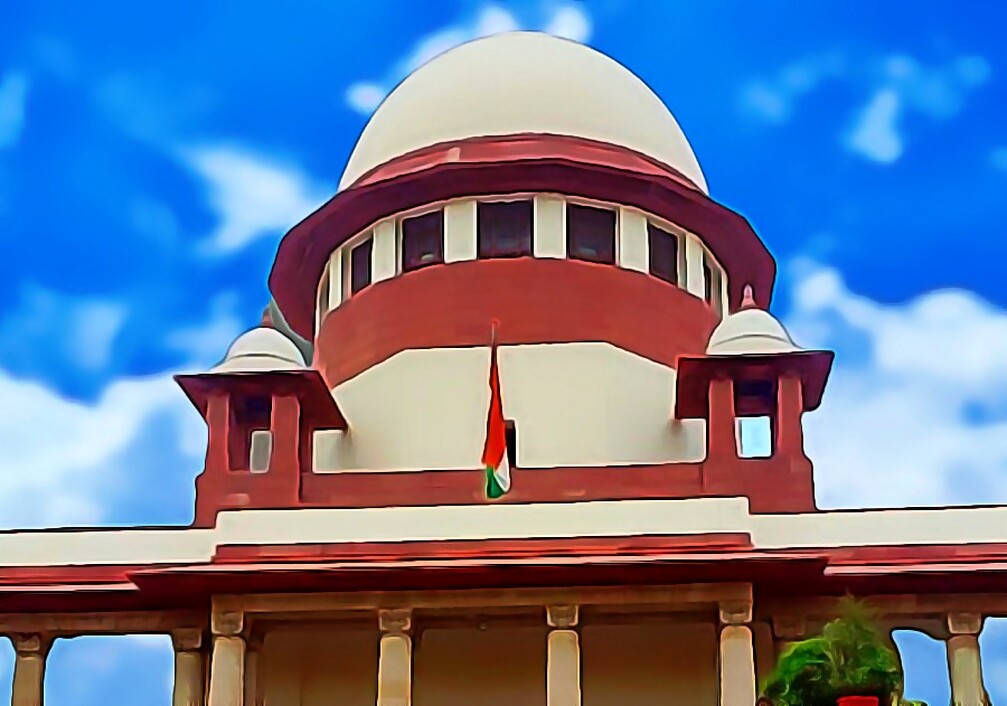Non-disclosure of each & every asset owned by candidate would not amount to a defect: Top Court allows appeal of Arunachal Pradesh independent MLA Karikho Kri against order setting aside his 2019 election from Tezu Assembly Constituency
Justices Aniruddha Bose & Sanjay Kumar [09-04-2024]

Read Order: Karikho Kri v. Nuney Tayang and another [SC-CIVIL APPEAL NO. 4615 OF 2023]
Tulip Kanth
New Delhi, April 12, 2024: While observing that a candidate's right to privacy would still survive as regards matters which are of no concern to the voter, the Supreme Court has upheld the 2019 election of Arunachal Pradesh independent MLA Karikho Kri from Tezu Assembly Constituency.
The factual background of this case was that in the year 2019, Karikho Kri, an independent candidate, Dr. Mohesh Chai, candidate of the Bharatiya Janata Party, and Nuney Tayang, candidate of the Indian National Congress, contested the election to the Arunachal Pradesh Legislative Assembly from 44 Tezu (ST) Assembly Constituency. The election was held on 11.04.2019 and Karikho Kri emerged victorious with 7538 votes, while Dr. Mohesh Chai secured 7383 votes and Nuney Tayang secured 1088 votes. Nuney Tayang filed Election Petition before the Assam High Court seeking a declaration that the election of Karikho Kri was void.
The Court allowed the election petition in part, declaring the election of Karikho Kri void under Sections 100(1)(b), 100(1) (d)(i) and 100(1)(d)(iv) of the Representation of the People Act, 1951, but rejecting the prayer of Nuney Tayang to declare him duly elected, as he had not led any evidence to prove the allegations leveled by him against Dr. Mohesh Chai, the candidate with the second highest number of votes. Aggrieved thereby, Karikho Kri filed an appeal and the Top Court directed that an election should not be held for the subject Constituency which was represented by Karikho Kri and permitted him to enjoy all the privileges as a Member of the House and of the constituted committees but restrained him from casting his vote on the floor of the House or in any of the committees wherein he participated as an MLA.
Karikho Kri filed an interlocutory application as a fresh schedule for election to the Legislative Assembly of the State of Arunachal Pradesh and he wished to contest in the election that is proposed to be held on 19.04.2024. He sought leave to contest as a candidate in the upcoming assembly election in the State of Arunachal Pradesh during the pendency of this appeal. The Supreme Court stayed the operation of the impugned judgment and also made it clear that any steps taken by Karikho Kri in view of the stay order would be subject to the final decision that would be taken upon conclusion of the hearing of these appeals.
In his election petition, Nuney Tayang claimed that the nomination submitted by Karikho Kri was improperly accepted by the Returning Officer, Tezu, as he did not disclose material particulars in his Affidavit. As the High Court was of the opinion that the nomination of Karikho Kri had been improperly accepted by the Returning Officer, Tezu, his election was held liable to be declared void under Section 100(1)(d)(i) of the Act of 1951.
Referring to the judgement in Santosh Yadav vs. Narender Singh, the Division Bench of Justice Aniruddha Bose and Justice Sanjay Kumar said, “It is well-settled that the success of a winning candidate at an election should not be lightly interfered with.”
The issue pertained to the validity of the High Court's findings that the grounds under Sections 100(1)(b), 100(1)(d)(i) and 100(1)(d)(iv) were established, warranting invalidation of the election of Karikho Kri. Further, the finding of the High Court that Karikho Kri committed a corrupt practice within the meaning of Section 123(2) also required to be examined.
The Bench was of the opinion that there were no actual outstanding dues payable by Karikho Kri in relation to the government accommodation occupied by him earlier. His failure in disclosing the fact that he had occupied such accommodation and in filing the No Dues Certificate in that regard, with his nomination form, couldn’t be said to be a defect of any real import as he did submit the relevant documents of 2014 after Nuney Tayang raised an objection before the Returning Officer. His explanation that he submitted such Certificates in the year 2014 when he stood for re-election as an MLA is logical and worthy of acceptance.
The Bench also refused to accept the blanket proposition that a candidate is required to lay his life out for examination by the electorate. “His right to privacy would still survive as regards matters which are of no concern to the voter or are irrelevant to his candidature for public office. In that respect, non-disclosure of each and every asset owned by a candidate would not amount to a defect, much less, a defect of a substantial character”, the Bench held while also adding, “It is not necessary that a candidate declare every item of movable property that he or his dependent family members owns, such as, clothing, shoes, crockery, stationery and furniture, etc., unless the same is of such value as to constitute a sizeable asset in itself or reflect upon his candidature, in terms of his lifestyle, and require to be disclosed… Each case would, therefore, have to be judged on its own facts.”
Referring to Section 100(1)(d)(iv) which requires that the established non-compliance with the provisions of the Constitution or the Act or any rules or orders made thereunder necessarily has to be shown to have materially affected the result of the election insofar as it concerns the returned candidate, the Bench noted that in the High Court's order no discussion was made on what were the violations which qualified as non-compliance with the provisions of either the Constitution or the Act of 1951 or the rules and orders framed thereunder, for the purposes of Section 100(1)(d)(iv), and as to how the same materially affected the result of the election.
The Bench also did not find adequate pleadings or proof to substantiate and satisfy the requirements of Section 100(1)(d)(iv). “Therefore, it is clear that Nuney Tayang tied up the improper acceptance of Karikho Kris nomination, relatable to Section 100(1)(d)(i) of the Act of 1951, with the non-compliance relatable to Section 100(1)(d)(iv) thereof and he did not sufficiently plead or prove a specific breach or how it materially affected the result of the election, in so far as it concerned the returned candidate, Karikho Kri. It was not open to Nuney Tayang to link up separate issues and fail to plead in detail and adduce sufficient evidence in relation to the non-compliance that would attract Section 100(1)(d)(iv) of the Act of 1951”, the Bench said.
Thus, the Bench held that the High Court was in error in concluding that sufficient grounds were made out under Sections 100(1)(b), 100(1)(d)(i) and 100(1)(d)(iv) to invalidate the election of Karikho Kri and, further, in holding that non-disclosure of the three vehicles, that still remained registered in the names of his wife and son as on the date of filing of his nomination, amounted to a corrupt practice under Section 123(2) of the Act of 1951.
Allowing the Civil Appeal and setting aside the Judgment of the High Court, the Bench upheld the election of Karikho Kri as the returned candidate from 44 Tezu (ST) Assembly Constituency of the State of Arunachal Pradesh.
Sign up for our weekly newsletter to stay up to date on our product, events featured blog, special offer and all of the exciting things that take place here at Legitquest.




Add a Comment